Montcalm County soybean field scouting report with North Central Soybean Research Program
The North Central Soybean Research Program conducts soybean extension research and data collection through field scouting by Michigan State University Extension educators.

The North Central Soybean Research Program (NCSRP) is a farmer-led, multi-state collaborative soybean research and outreach organization. This program leads a multi-state effort to conduct soybean production research to better understand plant stressors that reduce soybean yields and the effect on producer profitability. Michigan State University Extension (MSU Extension) field crop educators provide support to this program by conducting field scouting to collect data for NCSRP research locally throughout Michigan.
In 2023, some of the sites in Michigan were located in Montcalm County where approximately 29,000 acres of soybeans are planted annually, according to the United States Department of Agriculture National Agriculture Statistics Service. Steve Whittington, a Montcalm County-based MSU Extension educator, conducted field scouting throughout the 2023 production year in order to capture agronomic and production data in Michigan soybean fields utilizing the “Soy Scout” app for data collection. The app is being developed as a new online cropping system optimization decision tool utilizing production data in the north-central region. This optimization tool combines the factors of soil, seed, weather, planting date, seeding rate, chemical inputs and soybean prices to assist producers in making sound and timely decisions.
Every two weeks from soybean plant emergence through harvest, soybean fields were scouted for weeds, pests and diseases and all observations were recorded in the Soy Scout app. The scouted sites represented a wide range of agronomic management systems and recorded through Soy Scout. This data collection contributed to the success of the NCSRP program in 2023 and was an integral component of developing Soy Scout.
Soybean report for Montcalm County
Soybean scouting in 2023 in Montcalm County showcased a growing season filled with agronomic challenges related to weather. Across all sites, growers struggled initially with abnormally dry conditions during planting and early growth establishment in May and June.
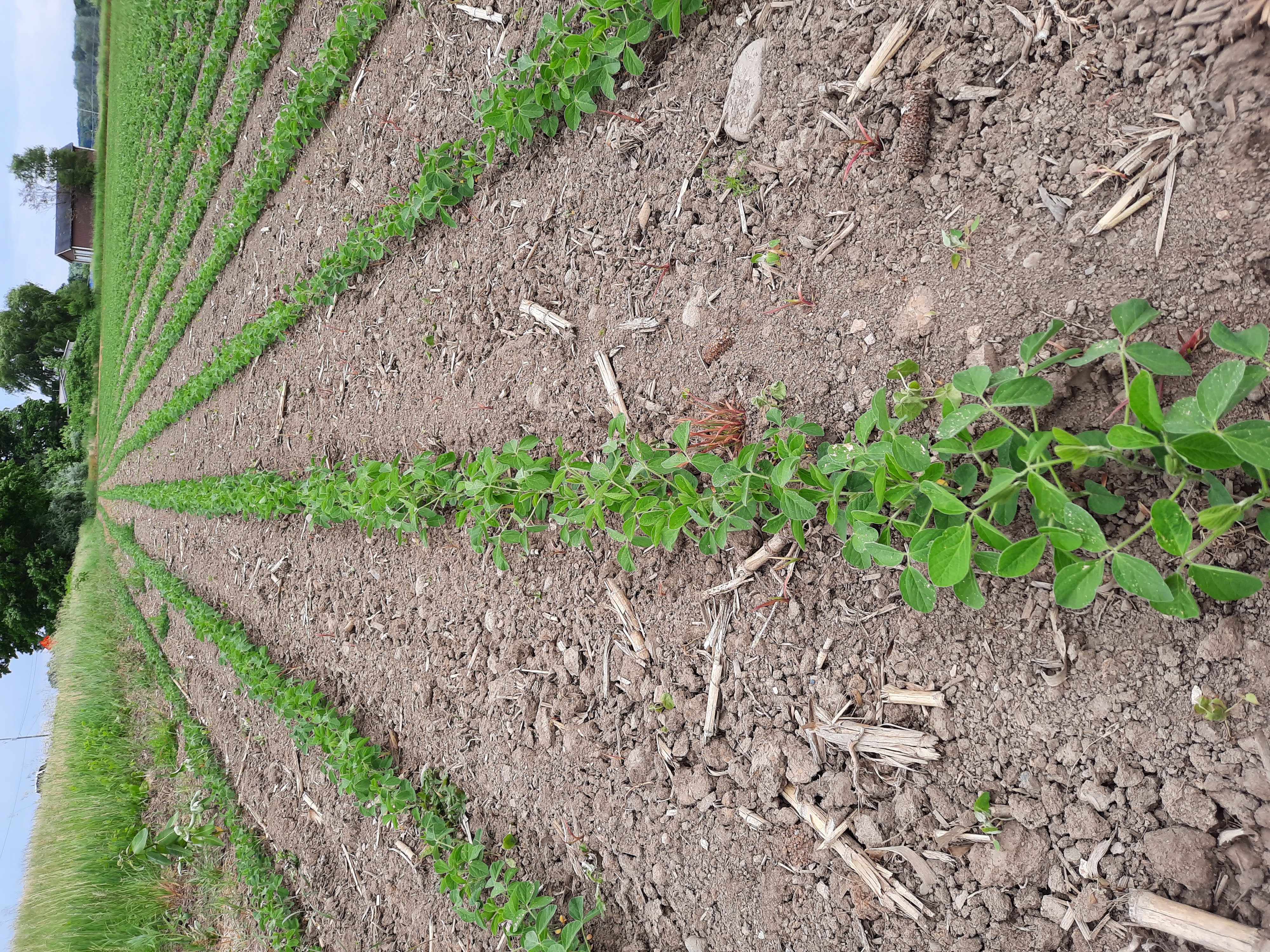
In a drastic change from abnormally dry conditions, heavy rainfall events began in late June and persisted into late summer across much of the state including Montcalm County. According to MSU Enviroweather, the Entrican Enviroweather station recorded 10.74 inches of rainfall from June 25 to July 31 with incidences of heavy rainfall of 1.62 inches on June 29, 1.86 inches on July 12 and 1.76 inches on July 29. For context, the 30-year average rainfall for June and July measured in Greenville, Michigan, is 3.17 inches and 3.11 inches, respectively. This midseason rain coincided largely with canopy closure in fields and created an environment ideal for the development of diseases such as white mold.
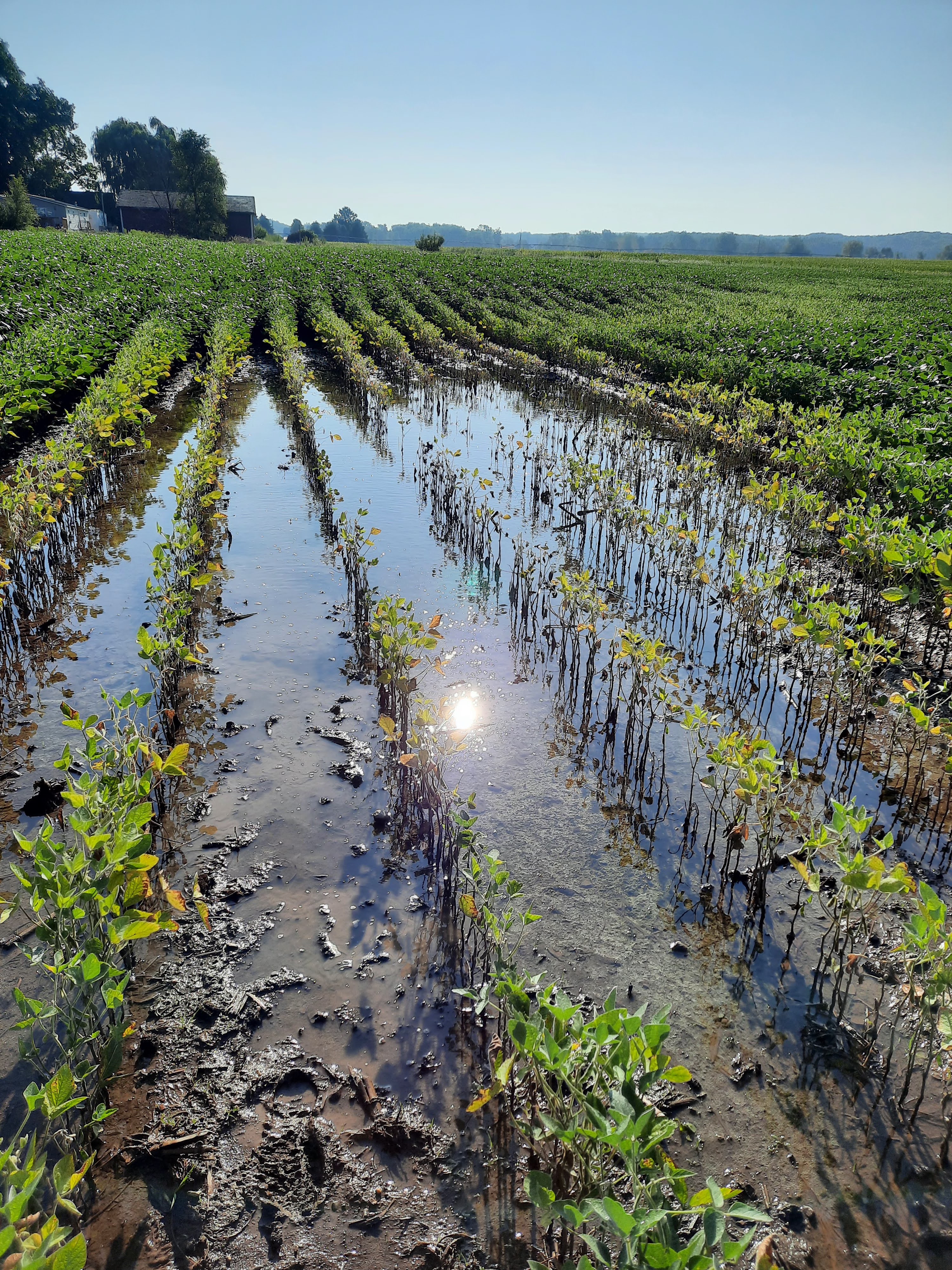
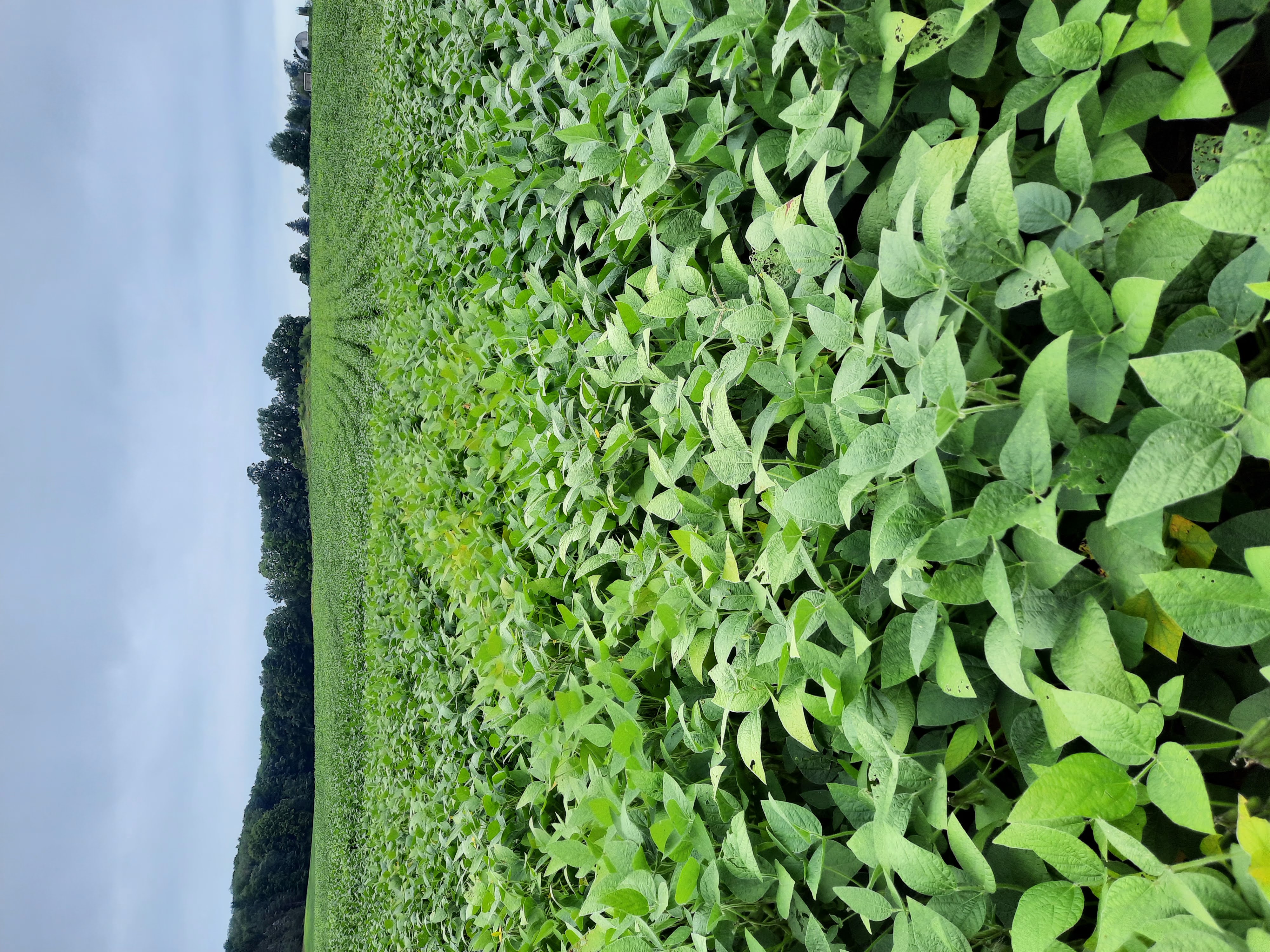
The prevalence of sclerotinia stem rot, commonly referred to as white mold, began to develop in some soybean fields in Montcalm County in August and September. White mold pressure was much greater in high-yield fields that were characterized by early planting, smaller row spacing and denser plant populations per acre. You can observe the presence of white mold in the canopy with foliar symptoms occurring from infection originating at stem nodes near the soil line. You can observe causal black sclerotia at the stem that causes Sclerotinia stem rot on the lower part of the soybean stem. Cottony mycelium of the disease sclerotinia sclerotiorum could also be observed on other parts of the plant including on the stem and pods.
For more information from MSU Extension on white mold in soybeans, refer to “White mold of soybeans and foliar fungicides” by Martin Chilvers. “Begin managing white mold in soybeans this spring” by Chilvers and Mike Staton is a great article that discusses variety selection and planting rate reduction as a management option for growers.
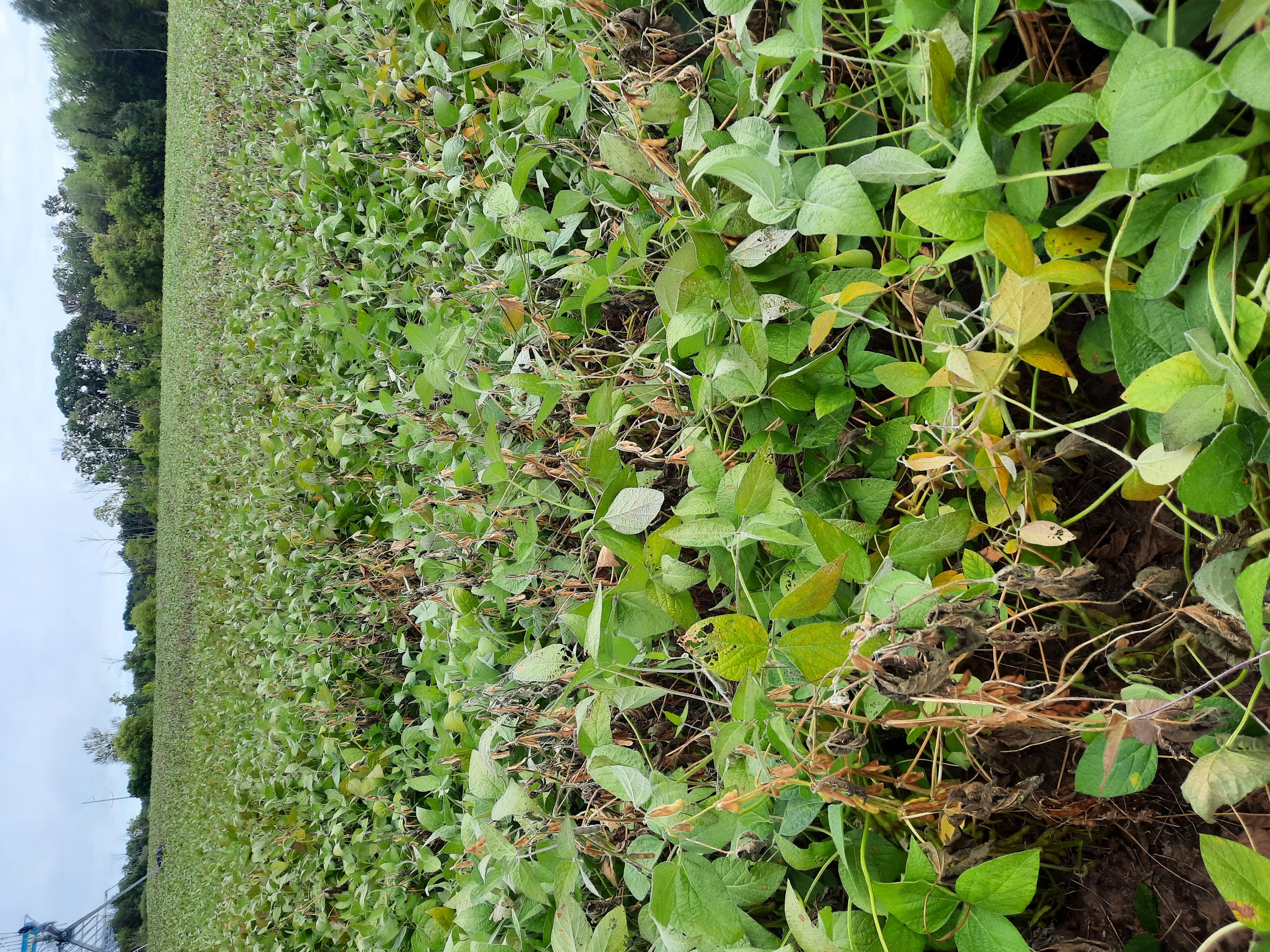
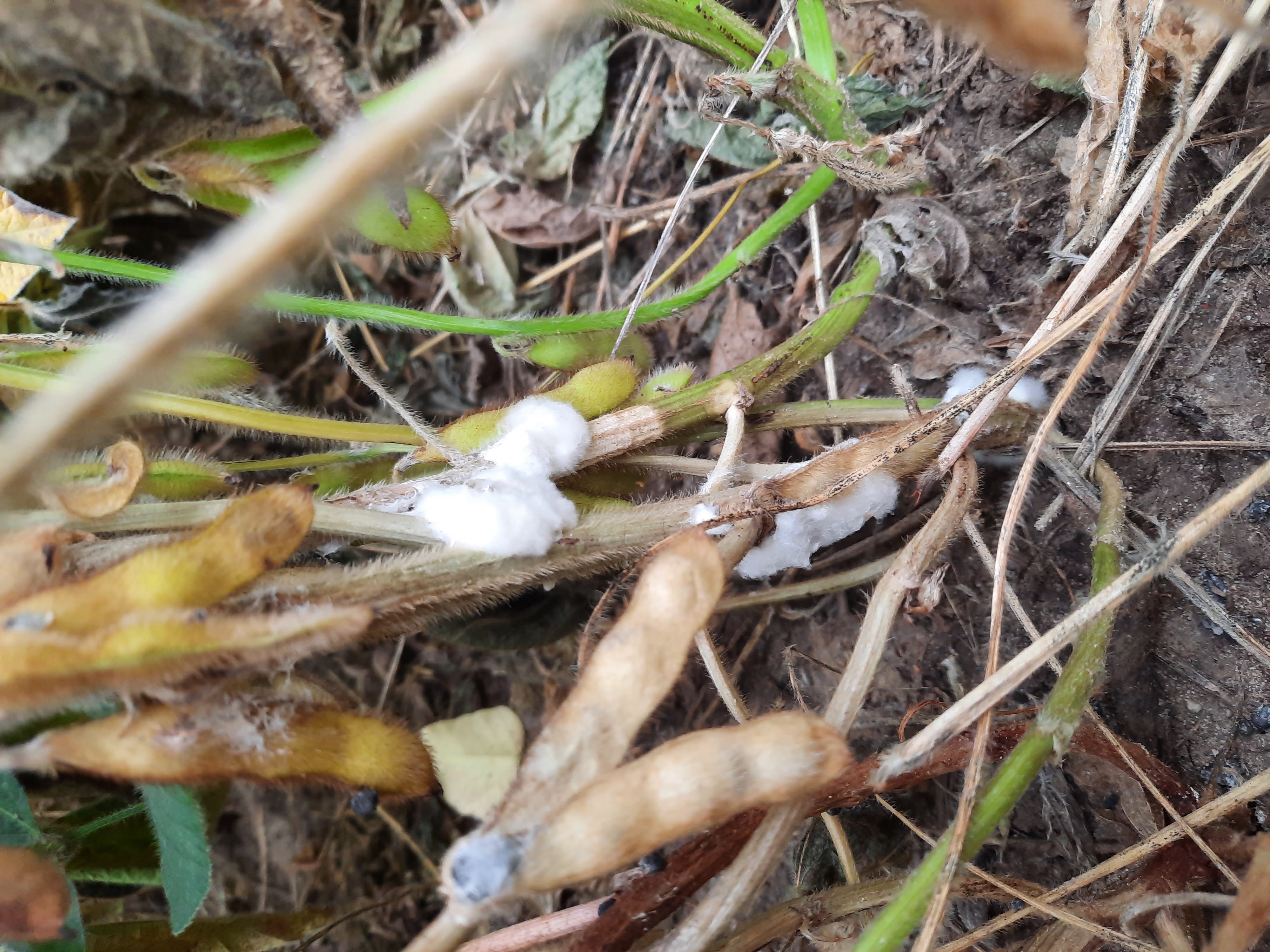
Despite these weather-related agronomic challenges, the scouted soybean fields looked favorable for the final field scout of the 2023 season. Samples of each field were then collected at multiple locations throughout each scouted field to analyze protein and oil content back at MSU labs. Updates of the 2023 program will be included in the NCSRP annual report.
A special thank you to producers who collaborate with MSU Extension to allow this research and data to be collected. The partnerships created with these local producers facilitate university research and further develop the soybean industry.
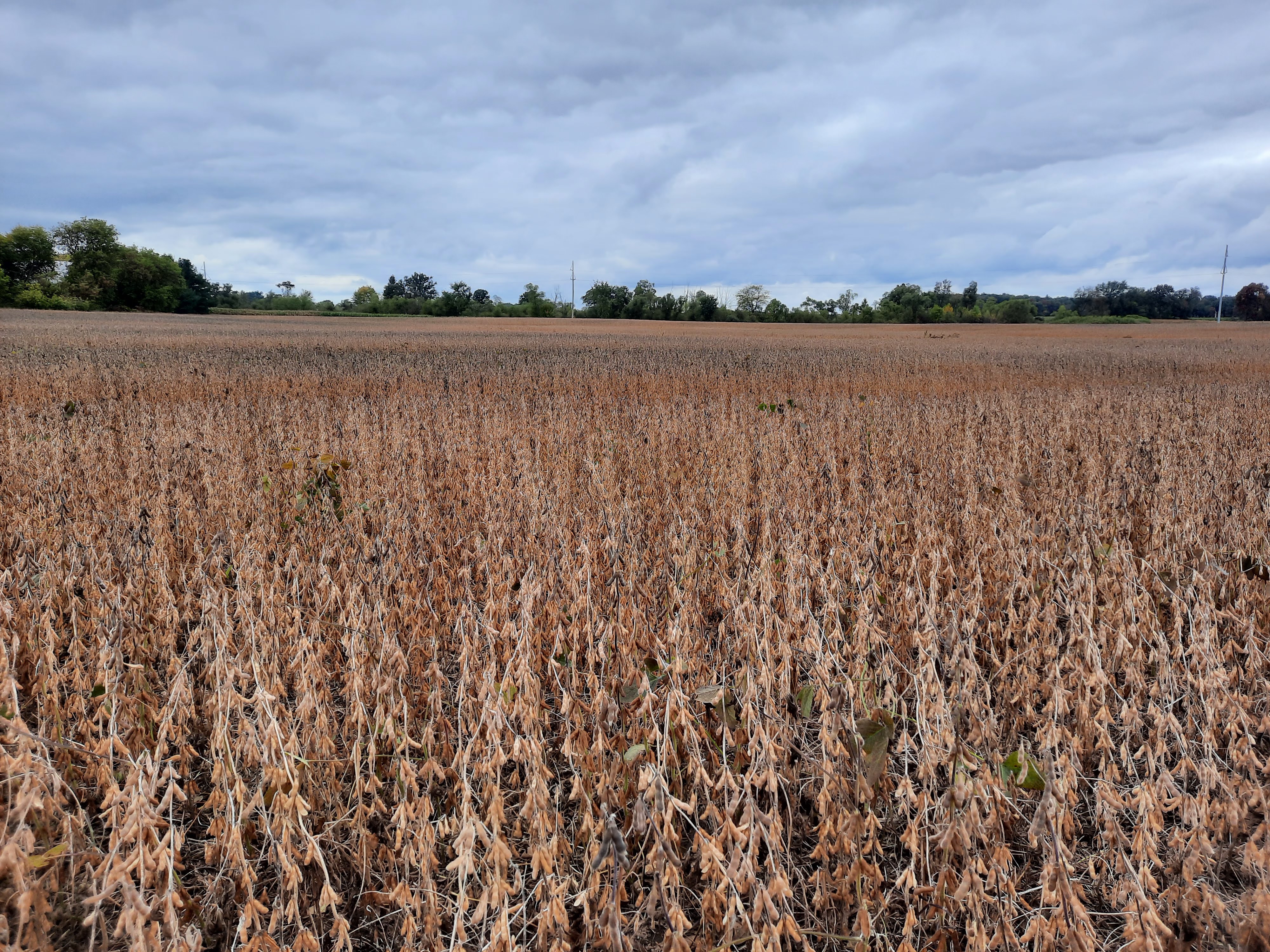



 Print
Print Email
Email